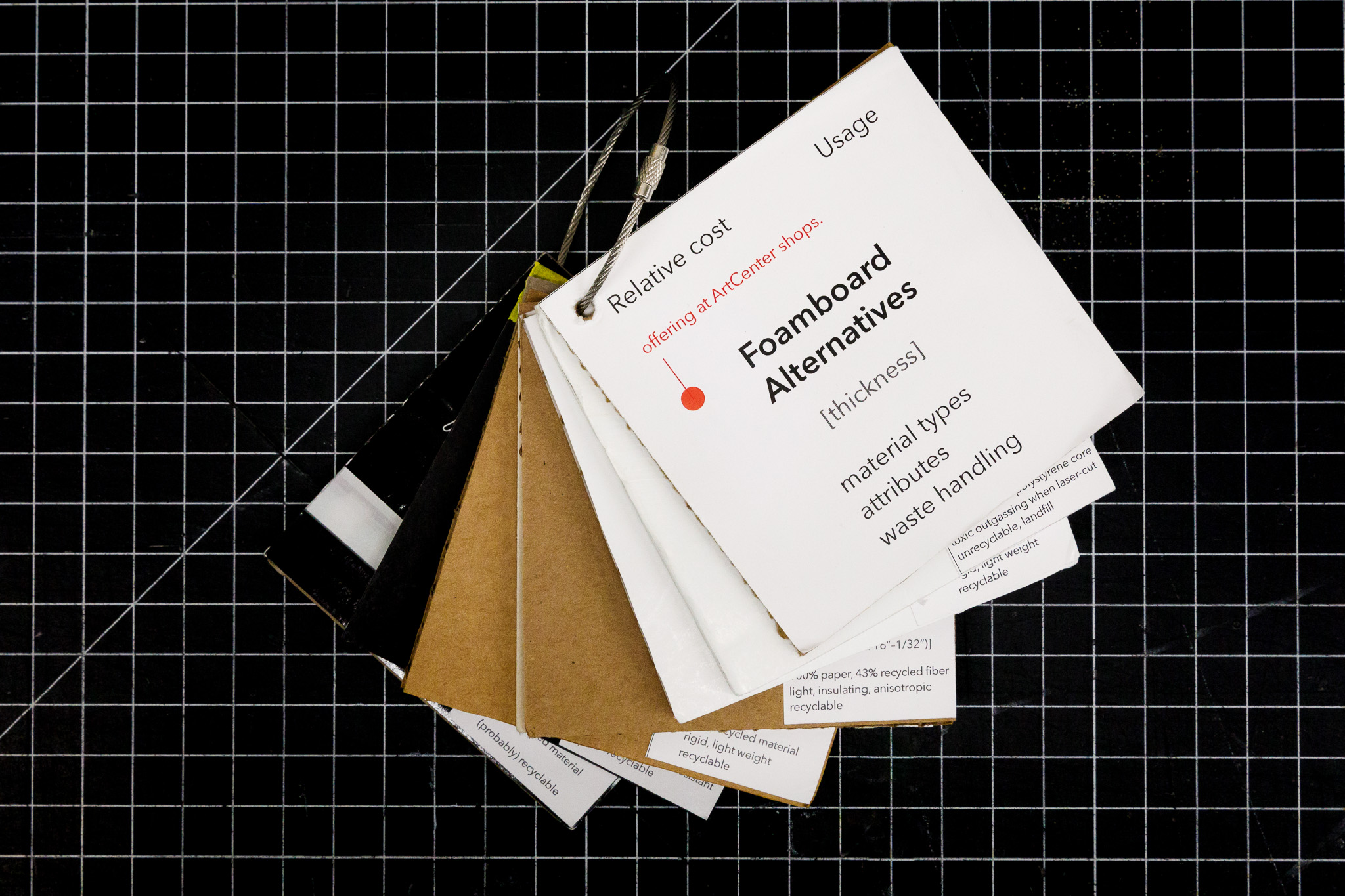We are a campus of makers who make things and it is no secret that making things is messy—it creates waste and often involves the use of chemicals.
People and departments throughout the College have already been working separately to reduce waste and mitigate chemical hazards but Provost Karen Hofmann recently assembled a task force of students, faculty and staff to study the materials regularly used in our shops and classrooms with the goal of developing best practices to reduce waste and environmental toxins.
The team’s first target is the use of polystyrene (foam board, foam core or Fome-Cor) in the Laser Lab.
The Lab was redesigned and relocated in May 2017 with an eye toward improving all aspects of the space. Taking a holistic approach, Laser Lab Supervisor Kelly Moon recalls, “in the spirit of this goal, I began to research the materials we currently allow to be cut in the Laser Lab.”
Her research found that polystyrene is known to have the potential to release toxic emissions when heated at certain temperatures. Additionally, heating the material can potentially ignite the board’s paper surface and cause a fire. She also found that dozens of other schools prohibit foam board from being cut due to its potential for toxicity.
Moon brought her concerns to Director of Environmental Health and Safety Cynthia Quentin, as well Shops Manager Joe Kohnke and Director David Cawley. Provost Hofmann added Director of Sustainability Initiatives Heidrun Mumper-Drumm and Associate Director CMTEL Marshall Hamachi to the conversation and, with the addition of Product Design student Shu Ou, the Foamboard Working Group was launched.
As a result of the group’s research, ArtCenter is discontinuing use of all polystyrene related materials in the Laser Lab. In addition to alleviating health concerns, eliminating its use reduces waste since polystyrene cannot be recycled.
The task force identified nearly a dozen alternatives to the material that can be used and laser cut safely—all of which are recyclable and some that even cost less than polystyrene. These alternative materials are now available for purchase at the Shops.
Sample rings of alternative materials were created and distributed at the end of last term and graduating students were encouraged to create a “Material Smart Grad Show” by using recyclable materials, reducing waste, considering the environmental cost of transporting exhibits to and from the Convention Center and minimizing the use of foam core and other potentially toxic materials. The task force collected feedback, comments and suggestions from Grad Show participants and will use this information to inform their recommendations moving forward.
Please note, polystyrene is solely being eliminated from the Laser Lab, not banned from campus entirely, but students are encouraged to consider other, more sustainable materials when creating and mounting their projects.
Questions about the policy and alternative materials can be directed to David Cawley, Joe Kohnke or Kelly Moon.
Any questions or concerns regarding environmental emissions, health or safety should be directed to Cynthia Quentin.









